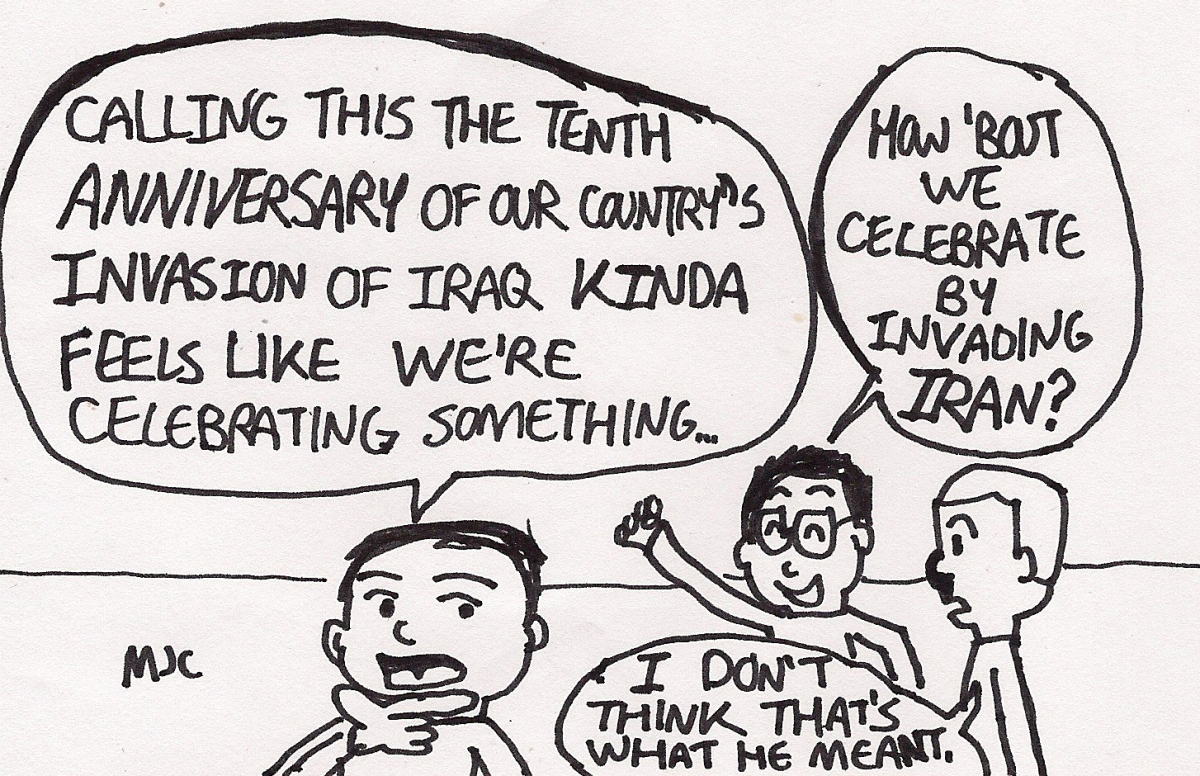Ten years ago today, the United States invaded Saddam Hussein-controlled Iraq. Eight and a half years, 4,400 U.S. deaths, more than 100,000 Iraqi deaths and almost $1 trillion later, the Iraq War officially ended Dec. 15. This war defined foreign policy for our generation. We grew up with this war, and as we reflect on its impact today, we can only hope that it never happens again.
You’d be hard-pressed to find an N.C. State undergraduate student out of middle school 10 years ago. Save for the true political prodigies, none of us even knew what foreign policy meant. War encompassed the British red coats and those guys that fought over slavery. It was the stuff of history books, and unless we had a family member actively deployed, it initially remained that way.
But we grew up. As we graduated from the ranks of middle school, the actions of our country began to matter. We paid attention in the 2008 election and took note of foreign policy’s prominent role in the campaigns — at least until the economy took center stage. Some of us began to express opinions against our Iraqi presence before quickly being labeled “unpatriotic.”
Looking back, it’s clear that was one of the great problems of the Iraq War. From journalists to the ordinary citizen, the Bush administration had everyone convinced that opposition to its efforts was on par with American disloyalty. But after years of the weapon of mass destruction absenteeism, we realized we’d been duped.
Before we go any further, we’d like to pause and say this did not — in any way — diminish our respect for members of our military. It may appear as if we’re communicating two different messages here, but that’s because these are two different issues. The reasons for the Iraq War may have been misguided, but that doesn’t downplay a person’s decision to risk his or her life for our country. This is true patriotism, and it stands in stark contrast to blindly supporting the decision to go to war in the first place.
So did we go to Iraq for the oil? Did we invade to clean up former President George H. W. Bush’s mess? We could argue endlessly, but that’s not really the point. In the end, we just hope we’ve learned our lesson. An eight-and-a-half-year lesson is a hard one to learn, but it’s a lesson no less.
We hope we’ve learned to think more critically about the actions of our government — and to not fear labels such as “unpatriotic” amid our pursuit of the truth. We hope we’ve learned that U.S. involvement in foreign affairs is a good thing, but not in the form of an unfounded military invasion.
We don’t have to make sense of what happened 10 years ago. What matters now is that we don’t ever blindly answer to an ambiguous war call again.




